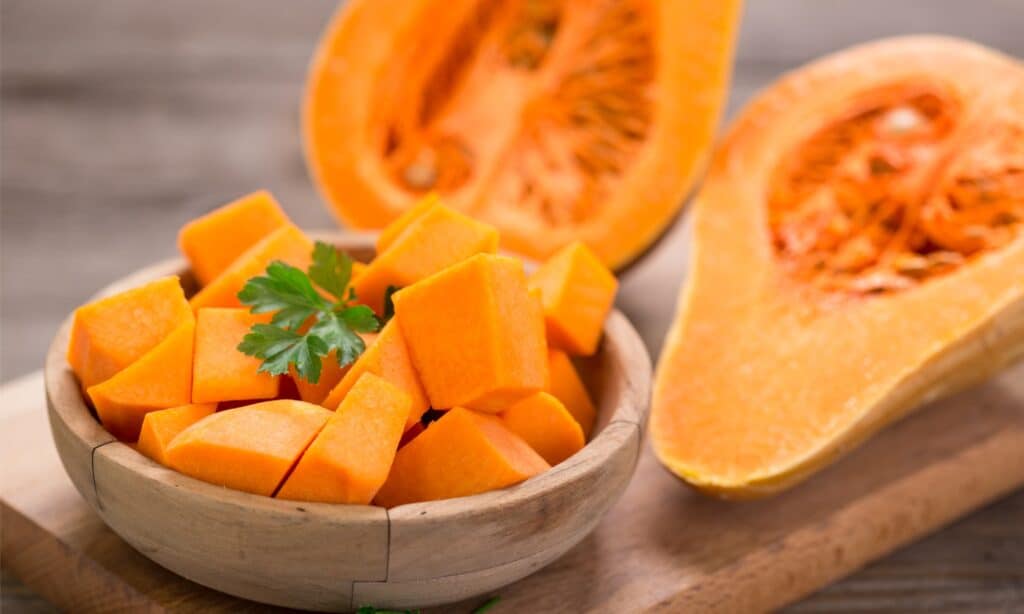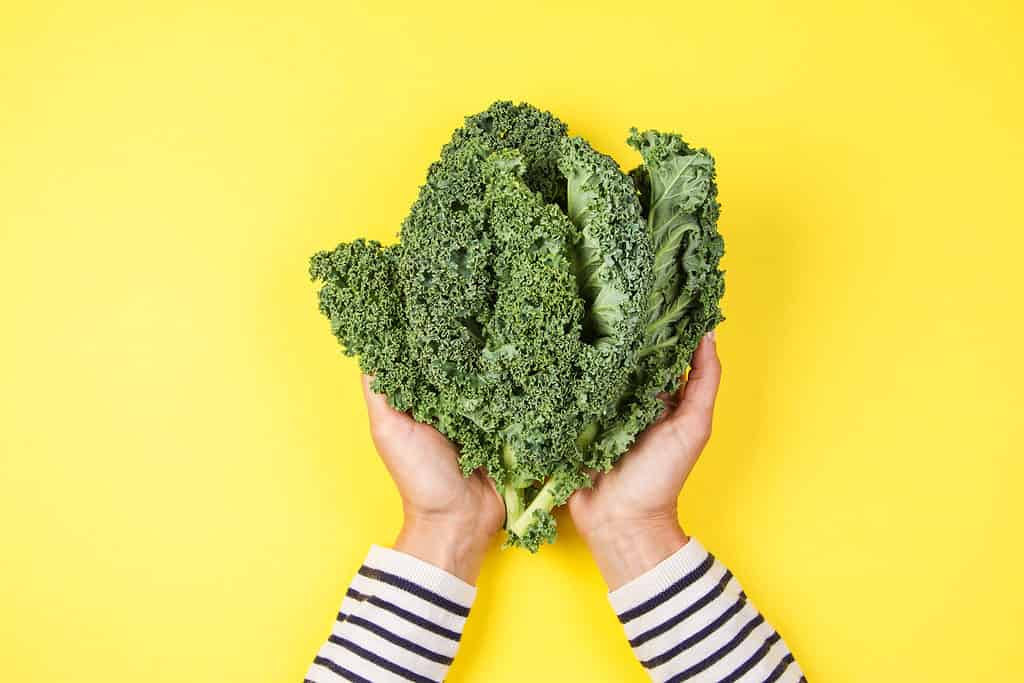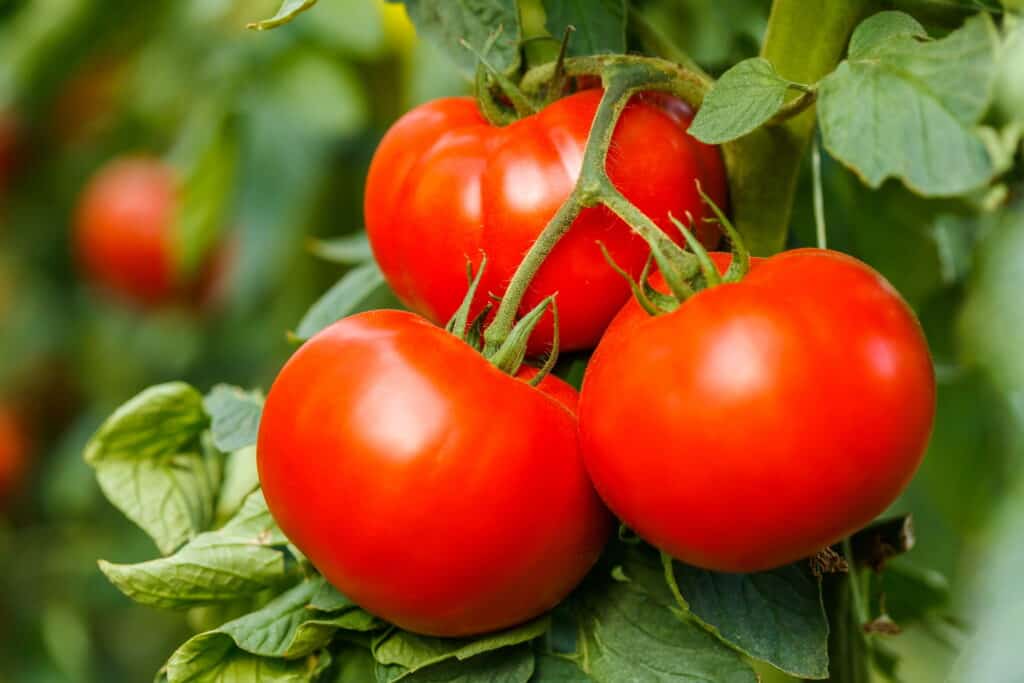Many think that the difference between a fruit and a vegetable is pretty straightforward. Vegetables are savory, while fruits are sweet, right? Not always.
While the difference between the two is, indeed, uncomplicated, our brains are hard-wired to think of these two food groups as black and white. Some vegetables can taste sweet, and some fruits can be used in savory dishes. Discover the three key differences between fruits vs. vegetables, including which group is the healthiest.
What is the Difference Between a Fruit and a Vegetable?

The only real difference between a fruit and a vegetable is which part of a plant they come from.
©iStock.com/pilipphoto
There is technically only one difference between a fruit and a vegetable. But we tend to classify them botanically and culinarily.
Seeds
The only real difference between a fruit and a vegetable is which part of a plant they come from. Fruits form from the flower of a plant, and vegetables come from all the other parts, such as the roots, leaves, and stems. And all fruits contain seeds, botanically speaking, which contradicts much of what we’ve been taught about fruits and vegetables. If all fruits contain seeds, then foods like tomatoes and cucumbers are technically fruits, not vegetables.
But if you were to judge the two based on culinary preferences, then the answer gets somewhat clouded.
Taste/Aroma
One of the most common ways people distinguish between fruits and vegetables is by taste and aroma. While tomatoes may be fruits from a botanical standpoint, we often use them in savory dishes, from spaghetti to Caprese salad. Vegetables, like asparagus, Brussels sprouts, and green beans, are almost exclusively used in savory or mellow recipes. Green beans are also fruits. Let that sink in.
People primarily use fruits in sweet dishes. Apples and berries make pies, tarts, and cobblers, and bananas are the main part of an ice cream sundae.
But we can also blur the lines with cooking, too. Tomatoes become sweet when baked in pies and tarts. And potatoes can be mashed and eaten with gravy or mixed with butter and brown sugar.
Nutrition
Both fruits and vegetables are healthy and aid in helping you maintain good health by preventing many diseases and controlling your weight. But, nutritionally, they differ in some ways. Fruits are higher in sugar and calories. And vegetables are higher in folate. However, they are both rich in antioxidants, fiber, minerals, and vitamins. And each specific fruit or vegetable has different nutrient or phytochemical profiles.
Fruit Vs. Vegetable: Which is Healthier?

Vegetables and fruits both contain vitamins and minerals. But fruits are higher in sugar and calories, making vegetables a slightly better choice.
©Veja/Shutterstock.com
Both are low in salt and fat, and both contain many vitamins and minerals. But fruits are higher in sugar and calories and some contain more fiber. And vegetables tend to contain slightly more water than fruits, especially leafy vegetables.
If you are trying to lose weight, then you should aim for eating more vegetables than fruit. And fruit, like most sugary foods, should not be consumed in excess.
However, for a healthy diet, you should aim for a good mix of the two. While fruits contain more sugar, they also have an abundance of other healthy, essential nutrients.
Citrus fruits, like oranges and lemons, are high in vitamin C, folate, antioxidants, and beta-carotene. Citrus can improve inflammation, aid in digestion, and prevent serious disease. And berries have a ton of anthocyanins, which have anti-inflammatory, antioxidative, anti-mutagenic, and antimicrobial properties. Anthocyanins can prevent and treat many diseases and disorders.
And of course, vegetables have a slew of benefits. Broccoli, and other cruciferous vegetables, contain glucosinolates, which can prevent certain types of cancers. And leafy greens can also reduce cancer, strokes, and heart disease due to their high level of carotenoids.
Vegetables That Are Actually Fruits

Tomatoes, eggplants, and peppers often get mislabeled as vegetables. But these foods are technically fruits.
©Szasz-Fabian Jozsef/Shutterstock.com
There are quite a few fruits that people often misclassify as vegetables. Here are the most common.
- Tomatoes
- Eggplants
- Peppers
- Pumpkins
- Cucumbers
- Pea Pods
- Green beans
- Okra
- Avocados
- Olives
- Zucchini
- Corn
- Beans
What Vegetables Taste Sweet?
The easiest sweet vegetable that comes to mind is the potato. Russet and red potatoes make excellent mashed potatoes. And sweet potatoes make sweet potato casserole during the holidays. But you can also make many other vegetables sweet, such as onions, carrots, and beets. Carrots taste delicious when glazed with butter, cinnamon, and sugar, and caramelized onions taste great on burgers!
The photo featured at the top of this post is © iStock.com/YelenaYemchuk
Thank you for reading! Have some feedback for us? Contact the AZ Animals editorial team.






